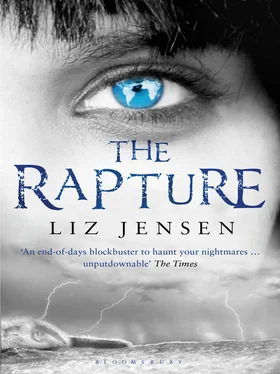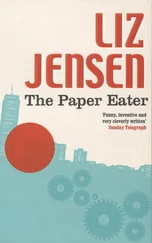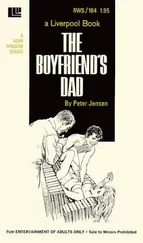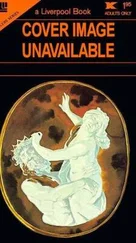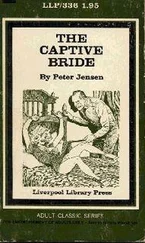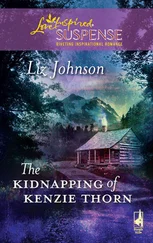In my lunch break I surf the net, following links and refining searches, backtracking and lateral-jumping, switching trains of thought on the lightest whim. I skim stories about the Planetarians’ latest call to indict the American ex-president for ‘Earth crimes’. About the Siberian tundra defrosting faster than even the most pessimistic models have predicted, about the outer edges of the Amazon basin being reduced to giant puddles of mud, full of choking fish, about how one day soon, the remaining forest will burn and become savannah: one lung gone. About the Gulf Stream absorbing the huge Arctic melt, slowing down, bringing less heat to the Atlantic, and playing havoc with shorelines. ‘If the warming process cannot be reversed in time, then the near-extinction of the human race is inevitable in the long-term,’ wrote Modak in his Washington Post article. But when Bethany refers to ‘the Tribulation’, the cataclysm she cannot name, is she simply speaking of the climatological point of no return, the tipping point that Modak believes has already passed — or some other, unidentified catastrophe?
How can you prevent something you can’t even name?
I click and click, and end up nowhere.
Feniton Acres is one of the eco-towns that sprung up before the housing crisis. I arrive there later than I had planned, sometime after six. The destination I have programmed into my satnav is part of a mall with a central car park. There is a jacuzzi franchise, a fishing-gear supplier, a vet’s, a cinema, a few upmarket clothes stores sporting mannequins in discreet leisurewear. Behind it all, there’s a golf course. The church itself, vast and pink, is low-slung, with a crab-like shell and a Scandinavian architecture-kit feel: a militantly uncombative building in a manufactured community. Amid the carefully spaced rowan trees and Japanese maple, I note with amusement that here, at least, the halt and the lame are welcome: In addition to several disabled parking bays, there is wheelchair access in the form of a cement ramp leading up to the main entrance.
Like many people concerned with the impression they make, I tend to hesitate in doorways — a bad habit which has worsened since my accident. But here, I do not have the luxury of preparing myself. The entrance is of the hospital or hypermarket variety, with sensored glass doors that slide open automatically. It must be well soundproofed because wheeling my way in, I’m hit by an unexpected boom of music. A disco-like hymn is underway. A rush of conditioned air brings an instant chill and gooseflesh to my bare arms. Inside there is a sea of people swaying to the music. They radiate happiness.
A few heads turn and I’m smiled at encouragingly. Among the five hundred or so worshippers, there’s a high proportion of black and brown skin in relation to white — much more than you would expect from Feniton Acres’s demographic. The hall is a giant carpeted space in a neutral, pale blue. Near the front, beneath a cement cross that rises in bas-relief from the whitewashed wall, there’s a band with guitars, some timpani, wind instruments and percussion, all played by men, apart from the saxophone, which is wielded by a teenaged girl in jeans. A few more smiles of welcome as I am ushered by a smart-suited young man to a space near the front of the hall, by an aisle, with a view of the action. He hands me a white envelope and a pen and whispers, ‘This is for your tithe. We all give what we can.’ On the front of the envelope are boxes to fill in, with name, address and credit-card information.
Near me a young woman is facing the congregation and swaying to the music using elegant arm and hand movements which look vaguely familiar. Several members of the audience, none of whom are singing, watch her intently. Then it dawns on me: they are deaf, and she is translating the hymn into sign-language. Though why she might need to I am not sure, as the words appear on a huge screen at the back of the hall in blue letters.
I’m going to stand right up and let Jesus in
And heal my soul from mortal sin
I’m going to pray to him each and every hour
Because the way is his and so is the power.
In front of me, a woman’s blocky body sways to the rhythm.
And then I see him.
In real life Leonard Krall is bulkier, more imposing and somehow more vital — more human — than the suave man in the photos on his website. He’s wearing a dove-grey suit, very well-cut, and has a microphone hooked over one ear. He doesn’t look like someone whose wife has been stabbed to death with a screwdriver and whose daughter is possessed by Satan. Catching my eye briefly and giving a nod, he rocks his whole body as he sings. A happy man, you’d say. A man who knows who he is and why he is here. A man in his element.
Unsure of the tune, when the chorus starts up again, I mouth the words. Around me, people are exchanging delighted, almost conspiratorial glances, as though they are all in on the same big secret. And perhaps they are. I think: the mass production of serotonin. Religion is the opiate of the people . Then, as the pulse of energy amplifies around me, another phrase floats into my head, a phrase from somewhere else, somewhere contradictory: if the spirit moves you . I feel a big foolish smile blooming on my face. Acceptance: accept, and you will be accepted. I’m being caught up in it. You can’t not be. A man next to me has flung his head back. While the others sing, he has his hands clasped in prayer, and is offering up a fast unbroken babble of words, as though experimenting with the possibilities of his tongue. I envy his freedom. I shut my eyes and sway to the music. With movement denied to my lower half, my upper body craves it. I lift my arms and wave them from side to side as I sing, following the words scrolling across the big screen above the choir. Tears come to my eyes in a Pavlovian reflex. I can’t help it. Group singing is like good sex. After the climax, you’re exhilarated but winded. I could do this for ever. We sing four more hymns, ending with ‘Stand up, stand up for Jesus’ — the only one I am familiar with. I am almost disappointed when it’s over and the congregation finally sits. Leonard Krall, bulky and energetic, begins pacing the front of the hall.
‘Those supermarket loyalty cards. Hands up who doesn’t have one?’ A ripple of laughter. ‘Well, I don’t know about you but most of the time I don’t give mine a second thought, except when it’s time to claim the discounts. But last time when the cashier was swiping my card through the machine I started to wonder about the word loyalty, and about the real transaction that’s going on here. As in, who’s being loyal to who — and why?’ He pauses, and as the nods kick in, he moves on to ‘the wider meaning of loyalty in our globalised society’. What kind of loyalty is important: loyalty to a retail provider, or a football team, or to our tribe (he indicates quotation marks), or to all of God’s children, whether or not they speak our language and even share our creed? Is it loyalty to a set of Christian principles? He thinks it is. You can see Bethany in him, in the upper part of the face, in the spacing of the eyes. There’s a potency. You could find him attractive. ‘War, famine, disease, catastrophes. The spread of atheism, climate change, the violence in Jerusalem and Iran. You watch. The political world is going to be shaken and shaken. Yet once more I shake not the earth only but also Heaven , Hebrews chapter twelve, verse twenty-six, and verse twenty-seven: the things that cannot be shaken will remain . We will remain. Here, steadfast in the Lord. For we can’t be shaken, right? But others can.’ He raises his voice warningly. ‘There is an epidemic of false religion in our world today. Our nation and our capital must turn back to God, the God of today, the God of now!’ He is shouting. ‘May we be drenched in your grace, 0 Lord! Drench us, drench us in your eternal love!’ Then he softens. ‘Glory be.’
Читать дальше
